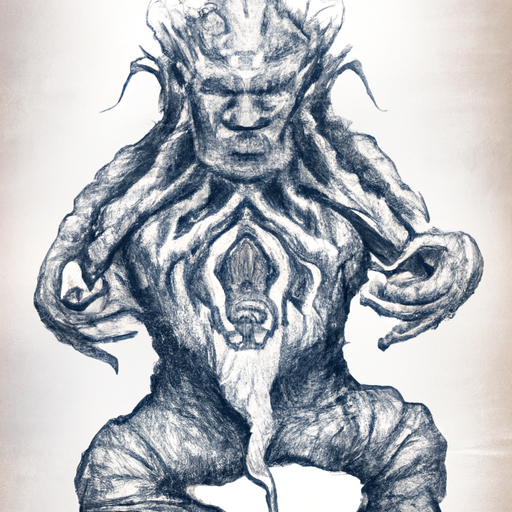This post pays tribute to Arik Einstein, an iconic Israeli singer, actor, and political figure. It explores Einstein’s political views, his impact on Israeli society, and the lasting legacy of his music and activism.
Who was Arik Einstein?
Arik Einstein, born in Tel Aviv, Israel in 1939, was a legendary singer, songwriter, and actor who is often referred to as the “Father of Israeli Rock.” With a career spanning over five decades, Einstein became an iconic figure in Israeli culture, known for his unique voice, heartfelt lyrics, and captivating performances. His music transcended generations and genres, touching the hearts of millions both in Israel and around the world. Einstein’s influence extended far beyond the realm of music, making him a cultural icon and a beloved figure in Israeli society.
Throughout his illustrious career, Arik Einstein released numerous albums and singles that became instant classics, showcasing his versatility and talent as a musician. His songs often reflected the social and political climate of Israel, addressing important issues with a blend of honesty and poeticism. Einstein’s music was not only a source of entertainment but also a vehicle for social commentary, earning him respect and admiration from fans and critics alike. Beyond his musical contributions, Einstein was also known for his humble demeanor, down-to-earth personality, and unwavering dedication to his craft.
‘Can music truly influence politics?’ – Einstein’s Political Stand
Arik Einstein’s music was not only a form of artistic expression but also a powerful tool for conveying political messages and sparking social change. Through his songs, Einstein often addressed pressing political issues, offering a unique perspective on the complex realities of Israeli society. His lyrics were imbued with a sense of social consciousness and activism, reflecting his deep commitment to using music as a platform for promoting dialogue and awareness. Einstein’s political stand was clear:
music had the potential to influence politics in profound ways, shaping public opinion and catalyzing movements for social justice.
- 1. Challenging the Status Quo:
Einstein’s music often challenged the status quo and questioned the prevailing political narratives of his time. By addressing taboo topics and shedding light on overlooked issues, he encouraged listeners to think critically about the world around them. Einstein’s willingness to confront difficult subjects through his music demonstrated his belief in the power of art to provoke thought and inspire change. - 2. Amplifying Voices of the Marginalized:
One of Einstein’s most significant contributions to the intersection of music and politics was his ability to amplify the voices of the marginalized and disenfranchised. Through his songs, he brought attention to the struggles of minority groups, advocating for equality and social justice. Einstein’s music served as a rallying cry for those whose voices were often silenced, empowering them to speak out and demand a more inclusive society.
Arik Einstein: The Unforgettable Melody of Activism
Arik Einstein’s music resonated with audiences not just for its melodic beauty but also for its powerful message of activism and social change. His songs served as anthems for a generation seeking to challenge the status quo and inspire meaningful transformation. Einstein’s unforgettable melodies became synonymous with the spirit of activism, sparking conversations and sparking movements for justice. Through his music, Einstein was able to capture the collective hopes and aspirations of a society striving for a better future.
His commitment to using his platform as a musician to advocate for social causes and shine a light on pressing issues sets him apart as a true artist-activist. Einstein’s songs were more than just entertainment – they were a call to action, a reminder of the power of music to ignite change. His unwavering dedication to addressing societal injustices through his art left an indelible mark on the music industry and beyond. Einstein’s legacy as a champion of activism through music continues to inspire artists and activists around the world to use their voices as a force for good.
How does Einstein’s Legacy Continue to Influence Today’s Music and Politics?
Arik Einstein’s legacy continues to resonate in today’s music and politics, serving as a timeless reminder of the enduring power of art to drive social change. His fearless approach to addressing societal issues through music has inspired a new generation of musicians to use their platform for advocacy and activism. Artists today draw upon Einstein’s example, infusing their music with messages of hope, unity, and justice, carrying forward his legacy of using music as a tool for social commentary and awareness.
In the realm of politics, Einstein’s influence remains palpable as his songs are often referenced in discussions about social justice and political reform. His music serves as a touchstone for those seeking inspiration and motivation to challenge the status quo and push for a more equitable society. Einstein’s ability to marry art and activism continues to inspire political movements around the world, demonstrating the enduring impact of his work on shaping the intersection of music and politics.
Arik Einstein was more than just a musician; he was a voice for the people, a beacon of hope, and a symbol of resistance. His music and political activism continue to inspire generations, making him a true legend. His loss is deeply felt, but his influence lives on, reminding us of the power of art and the importance of standing up for what we believe in.



